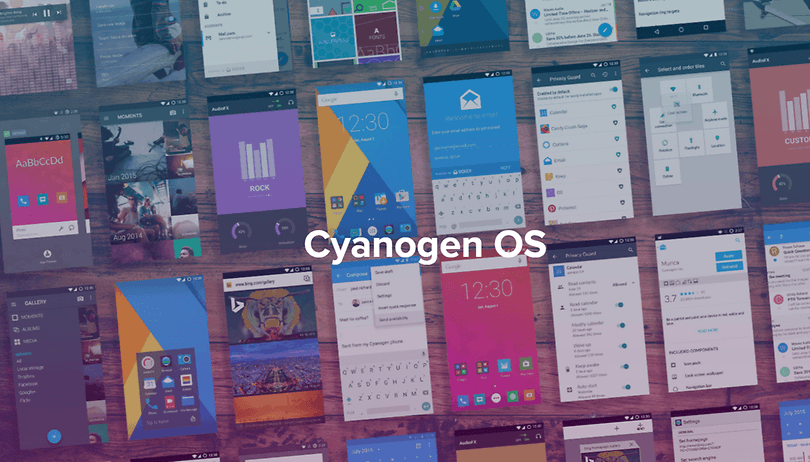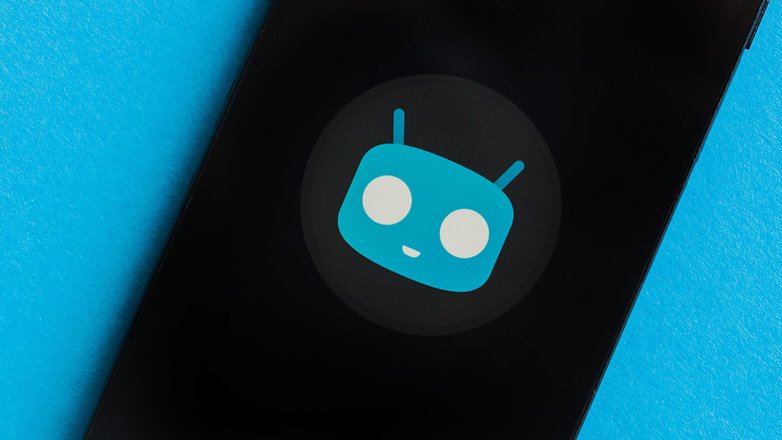Cyanogen OS's demise was a necessary loss for the Android ecosystem


At the end of last year, Cyanogen confirmed what a lot of loyal users didn't want to hear: that the OS and services as you know them will be closing as of December 31. As well as leading some users to wonder what that means for the future of their OS updates, it was generally taken as sad moment for the OS and wider Android ecosystem, but I think it's a move that needed to happen.
Hold back your outrage for just a moment and look at the months preceding the announcement.
During a year in which the Cyanogen Inc replaced its former CEO Kirk McMaster with (then) COO Lior Tal and said goodbye to one of the pillars of Cyanogen in the form of co-founder Steve Klondik, it was clear that the company was in some turmoil, and ultimately headed in a different direction.
With the end of Cyanogen and the open source, community-supported CyanogenMod builds, that means vendors that use either the Cyanogen OS or CyanogenMod need to make their own arrangements for either transitioning away, or building their own forks of CM. It hasn't really helped that there was a company called Cyanogen Inc, an OS called Cyanogen OS and another entirely separate (though financially supported by the commercial enterprise) one called CyanogenMod.
Early warning signs
In some ways, the company's relationship with its arguably most successful partner, OnePlus, ended far too quickly, and after just one handset. That too, retrospectively, could have been an early warning sign for a business that had an unequivocal mission to significantly disrupt Google's vision of Android. Partnering up with a plucky young hardware company also trying to change the mobile world was a smart move in lots of ways, but the disintegration of that relationship due to conflicting visions so soon after it began wasn't a good sign.
Other vendors will now have to do what OnePlus did before, build their own platforms and revert to using stock Android. If different OEMs build their own spin, that'll lead to more variety in the mobile market than if all those manufacturers used a straight Cyanogen ROM. That'll take time and money, but the end user doesn't necessarily lose out. It's a process that Wileyfox has already started in the UK, and one that Micromax could undertake in India.

That's not to write off the now-resurrected CyanogenMod project that's being built under the rather appropriate name of Lineage OS as another open source project, but it's going to be a long road - the volunteers and resulting team will need to bring together a whole lot of resources to build a custom OS, and right now it doesn't even have an official way to receive financial donations in place. Frankly, even just the change of name will be a good thing for the future of what was once CyanogenMod.
While it might not be a fact that you necessarily like, removing Google's services - the very thing any casual user would come to associate with a phone that has Android at its core - isn't a good move for hardware or software makers. Sure, if you can successfully replicate (and then improve) upon them continually, go right ahead - but there's no startup in the world that can dedicate resources in the same way as Google. Trying to directly cut the company out of its own OS was never going to sit well.
Just three months before taking its websites offline and ending its services, Cyanogen Inc said it was going to offer a more modular approach, thereby not restricting what core OS or services manufacturers could offer on their devices. With no indication to the contrary, that appears to be another vision that lays in tatters. Our attempts to contact the former company proved unsuccessful.
Given the internal changes at the company - that also included layoffs and the closure of an office in Seattle - Cyanogen as a commercial enterprise was stuck in a no-man's land between pushing for profitability and staying loyal to its roots and users. Now, you have a new grassroots effort picking up the baton in the form of Lineage OS and promising to stay true to CyanogenMod's users, and the end of a commercial entity that no longer made sense.
In some ways, the closure of both Cyanogen and CyanogenMod are a sad passing for a company that spent seven years working to redefine Android for a different user, but in other ways, it could result in even more variety and a better experience for Android users.
Will you be supporting the new Lineage OS project? Will you miss CyanogenMod? Let us know in the comments below!


















Cyanogen Mod
You paved the way for rooting Roms, but your end came no thanks to ignorance (on so many levels) that could not be repaired (a tarnished reputation) .... and now Lineage OS is the rebranding that's necessary to continue where you left off at ?
Cyanogen was some wannebe-commercial company based on effort from many people who did it for free, in their own time (CyanogenMod).
But I started to dislike CyanogenMod for a very long time already. It became a huge mess lately, with very limited quality support/quality releases for most phones. Even if its done by people for free.. some structure and commitment is required.
demise of cyanogen is good as,its google which revolutionised the smart phone,it made smart phone available to both rich and poor,made the world digitally literal,so cutting the roots of iys own parent and trying to associate with microsoft is the most bad thing,the future is android and even if it is ad based each and every one get the resources free ,only from google ..
Cyanogen Mod is not going away and will still be here. No one understands that it's literally a rebrand, and they're starting off with the last build they made as Cyanogen Mod and will be the exact same thing.
Cyanogenmod has no serious competition...
I loved cyanogenmod it was just about the only roms I would use and still running cm13 on my oneplus one
I used CM roms for S2, S3 and S4. And now: lineageos!
I DON'T KNOW, BUT I'VE NEVER LIKED CYANOGENMOD ROMS. AND I'M A BIG-TIME ANDROID MODIFIER.
I find the fallout between OnePlus and Cyanogen to be ironic. It seemed like most people thought the breakup would severely hurt OnePlus, and Cyanogen would simply move on. Now OP seems to be doing better than ever hardware- and software-wise, and, well, obviously things didn't work out for Cyanogen.
It felt doomed from the beginning, but I think OnePlus needed a stable OS with a current feature set and OTA updates to launch their phone and Cyanogen was the only obvious choice. Their relationship seemed to go downhill from there.
Duh, Oneplus is always coming out featuring latest SoC, and Highest RAM modules. Now, with latest NAND type, UFS. However, I've noticed Oneplus prices have edged up compared to previous generations handsets. Never do they have recent release in Stock.... Asus, priced their latest phone $700 which specs competes with all phones available today! One plus 2 sadly wasn't a phone many wanted. Nowadays, we're at a gigabyte a second download speeds and their phones don't support SD card, and only possess up to 128 gig... That phone could be filled with data in Two minutes... Compared to Asus... 2 MINUTES PER SD CARD.
I don't exactly understand the spat with cm and Oneplus regarding India,? But if Samsung lost greater dollars recalling their latest Note.... I could see OnePlus fury over Cyanogen.
Still, I'm shocked about Cyanogen... Didn't Microsoft a few years back invest millions into this company?,
The reason for spat between oneplus and cyanogen, was latters exclusive contract for cyanogen phones in india with micromax's yu, with this oneplus could no longer sell oneplus smartphones with cyanogen os in india...
I never had a great experience using Cyanogen on my OnePlus One. As previously mentioned, random reboots, eternal boot durations, shoddy network connections, etc. were a regular occurrence for me. I recently loaded the latest Oxygen OS ROM available for the OPO (based on Android 5.1.1!) and all those problems disappeared, along with a bunch of cool features. ?
The Nougat builds for the OPO are pretty stable now. Try the Resurrection Remix ROM or the TugaPower ROM. They're both pretty good
The community now has to rely on lineage staying away from commercialism. Keep this start clean, away from the ones, who want to profit from it. Time to move on.
Lol, i think the bullet didn't go through Google's head.
The world deserves an open source OS suitable for ARM devices, much like Linux and Windows was/is possible on x86 devices. CM was almost there, and their demise is very sad. So many devices are instantly ' end of life', and its concerning as this would certainly stimulate new hardware sales???
For me and likely many others cyanogenmod was about having up to date features on an older phone, I haven't upgraded my phone for about 4 years thanks to cyanogenmod as I've felt no need to and have saved a fortune. Hopefully Lineage can provide the same benefit.
I am using Nexus6 7.1.1 stock
and in comparison to CM 14.1 it is far more stable and reliable and never betrays you at times
i had bad experience with release version CM13 it randomly rebooted and then take too much time starting also network reception was bad in it
Lineage should focus on reliability rather than producing nightly daily
The thing I liked about Cyanogen was that it provided a steady stream of upgrades. If Google came out with a new version of Android you could be sure that Cyanogen would have an update to that new OS version and through the easy to use inbuilt OS update process. While some of the other custom ROMs are good they dont provide the same future proofing that Cyanogen did in that a developer might create a great ROM for one version of Android but not necessarily follow it up with the next version. I will look at Lineage when it comes out and if it replicates that process then fantastic.